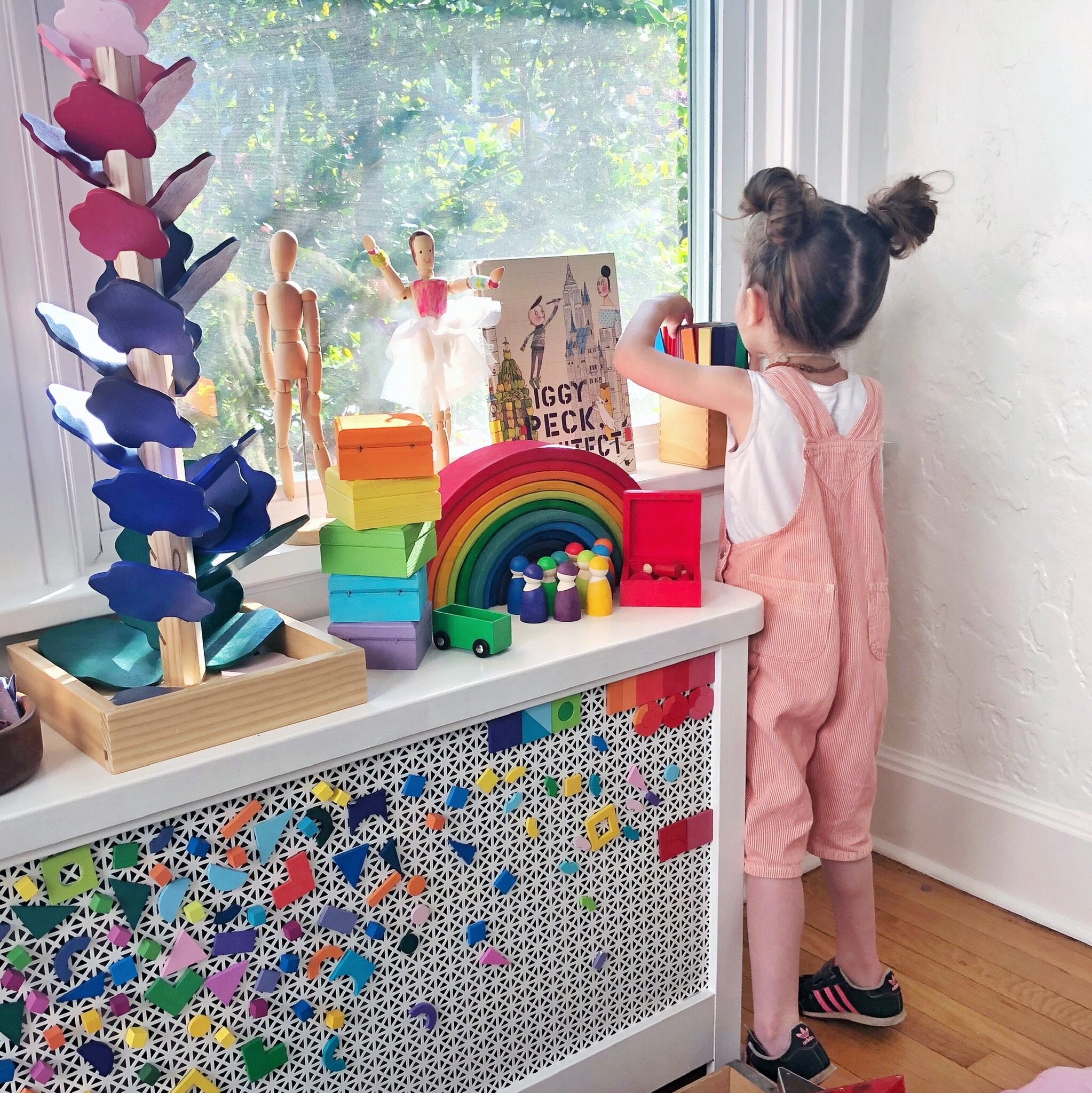Helping Your Child Learn to Share: Why Full Turns Matter
/If your child has a hard time sharing, are they selfish? Are you spoiling them?
How many times have you explained the concept of sharing… but they just don’t get it!!
Being able to share has nothing to do with being selfish or spoiled and everything to do with feeling safe and reassured. Kids who are allowed to finish a turn before giving up a toy feel better about giving up the toy to a peer. The more repeated experiences the child has with being allowed to finish a full turn before giving up a toy, the more likely they’ll be to share.
Think of it this way; If you were reading your favorite book and your friend wanted to borrow it when you were finished, you’d happily give it to them. But, if you were reading your favorite book and your friend kept trying to pull it from your hands, you’d hold it closer. You would be possessive over your book and unwilling to share. It’s the same thing for kids. When they are reassured that they’ll have their full turn, there is less fighting, less grabbing, and less jealousy.
If you want to implement this way of thinking, instead of saying:
Honey, we share!
Don’t be selfish.
You need to be kind!
Support your child by saying:
You can say, "It's my turn now, you can have it next."
Please give that ball to them when your turn is over.
She wants that book. Tell her, "You can have the next turn."
Why “share” won’t work:
When you tell your child to share, you are really telling them to give up what they have. When you tell your child to be kind, they don't know what that means. It's too vague. Telling them not to be selfish tells them that they are bad for feeling protective over something that is important to them.
Why allowing full turns will work:
Allowing for full turns consistently builds confidence in the turn taking process. This leads children to feel more generous and less possesive. They trust the process of taking turns.
So, next time you find yourself giving the “We share” speech, remember this post.








…It’s being able to handle a “no” at the bakery.